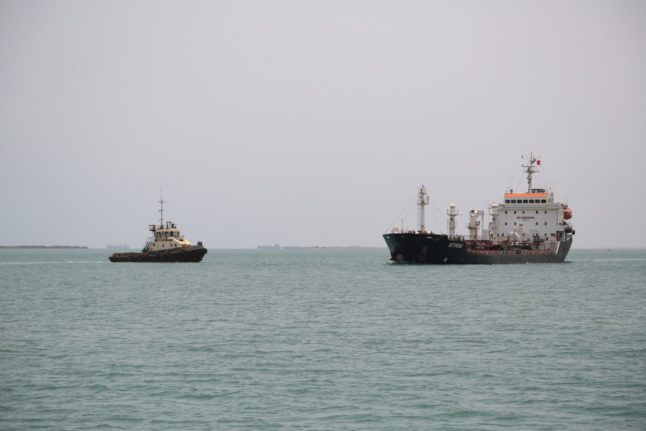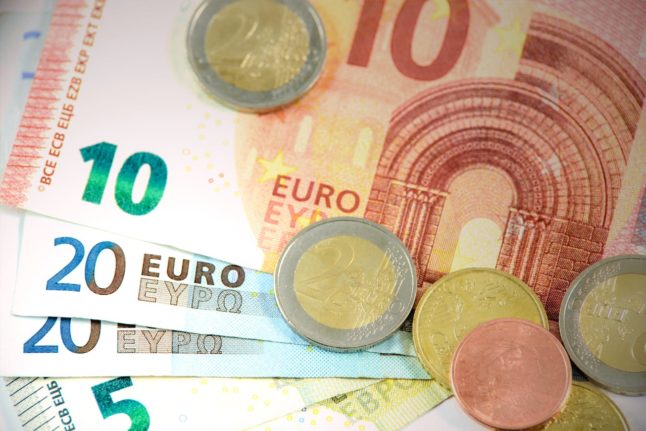Since November 2023 Houthi rebels have launched dozens of attacks on merchant ships in the Red Sea, essentially blocking an important shipping route through the Suez Canal between Europe and Asia.
This means that the Red Sea is currently closed to international maritime traffic and its consequences for global trade are unpredictable.
Recently, the US, along with the UK bombed targets in Yemen in retaliation and the Bab-el-Mandeb Strait has become a war zone, meaning shipping companies are forced to go around the African continent and the Cape for Good Hope, causing freight prices to skyrocket.
READ ALSO: Spain rules out joining EU’s Red Sea mission against Houthis
According to the International Monetary Fund, the volume of goods transported through the canal fell by 35 percent last week, compared to the same period in 2023. This has brought concern among exporters, who indicate that the problem could affect €135 billion worth of trade deals between Spain and Asia.
General secretary of Transprime, the Spanish association of shipping companies Jordi Espín explains: “Six weeks ago we were in a scenario in which there was an oversupply of maritime transport because demand had contracted. Prices were $1,500 USD per container for the Asia-Europe route and there were fights between shipping companies to get customers. Now, prices have risen 300 percent, to around $4,500 USD and they will probably continue to rise”.
“Sending a container from Spain to China now costs three times more,” he concludes.
Of course, this means that the extra cost may trickle down and ultimately have to be financed by the consumer, making goods that usually travel from Asia through that route, that much more expensive.
Certain food products will increase in price in Spain including coffee, rice and even seafood.
Spain has until recently imported 40 percent of its coffee supplies from Asia, especially from Vietnam, figures from Spain’s Ministry of Agriculture show.
Rice production in Andalusia – accounting for 45 percent of the national total – has dropped due to drought in the region, thus raising the need for rice from Asian countries.
Furthermore, palm oil – used in a variety of foodstuffs from chocolate to cereal and crisps – will be scarce in Spain, as the country imports 66 percent of its supply from Asia.
Oil prices may also soar as a result, leading to a resurgence of global inflation.
Experts predict the crisis may also affect Spain due to the shortage of fuel and crude oil imports. It is estimated that Spain imports more than one million barrels of crude oil every day, which represents around 40 percent of total primary energy.
Tesla and Volvo have both put pauses on production and the UK’s iNews has claimed that the price of tea across Europe will be affected by the crisis too.
Other products that could increase in Spain include fuel, raw materials and semi-finished products such as metals, glass, chemical products, fertilizers and rubber. The higher cost of rubber for example will likely to affect the price of car tyres too.
“Circumnavigating all of Africa around the Cape of Good Hope to avoid the Red Sea implies that, depending on the type of ship and its origin, the route increases by 15 or 20 days, with an evident increase in expenditure, for example on fuel, which can be 50 percent. This will end up having an impact on the consumer and also implies delays in deliveries, which can be especially sensitive for the industry in some sectors, such as wood, rubber and electronics,” explains Fernando Ibáñez, director of Maritime Protection and Safety of the Campus for International Security and Defense.
The Red Sea crisis is also suffocating the supply of shipping companies and journeys may be increased 18,000km to 25,000km, which represents an increase in cost between 40 and 60 percent.
“Ships have a two-week delay arriving port and that delay accumulates, which causes there to be fewer available ships and that has an impact on the cost,” explains Ramón Gascón, coordinator of the Exporters and Investors Club.



 Please whitelist us to continue reading.
Please whitelist us to continue reading.
Member comments